
Community Coastal Experience
A project of the Community Organized Restoration and Learning (CORaL) Network
The Community Coastal Experience (CCE) is an annual opportunity for Alaskan adults to explore career and internship pathways in marine and coastal research, environmental monitoring, and Alaska Native culture, history and arts. During the CCE, interns travel with program leaders to different locations in southcentral Alaska to observe, learn, and practice new skills in coastal ecology and environmental sciences. Through immersion in new field environments and intentional connection with land, water, and each other, interns will broaden their perspectives through discussions about the challenges facing their communities and ecosystems.
During this intensive month-long program, CCE interns will be exposed to career and internship pathways in areas including:
Marine & coastal research
Environmental monitoring
Alaska Native cultural history & arts
Archaeology & museum collections care
Mariculture
Ethnobotany
Science communication
Environmental stewardship
…and more!
Each year, the Community Coastal Experience takes place in early summer in several core locations in southcentral Alaska, which can include Kachemak Bay, Seward, Cordova, and Kodiak. The exact timing and locations for each CCE change each year. Learning experiences in each location are hosted by local research agencies and community organizations.
CCE deeply values environmental stewardship, Alaska Native cultural revitalization, and leadership development. This program mixes professional development with community development, and connects interns with projects that work to weave together environmental science and Alaska Native cultures. This program takes place in the region impacted by the Exxon Valdez Oil Spill in southcentral Alaska. CCE interns will boost their fieldwork skills, build networks with other communities and individuals, and become more familiar with local Indigenous cultures and coastal science in southcentral Alaska. Interns will also grow their professional networks by building relationships with people and organizations that offer jobs and internships in these prospective fields. This program provides interns with the tools and context to bring their learning back to their home communities through the exploration of their understanding of self, home, and purpose.

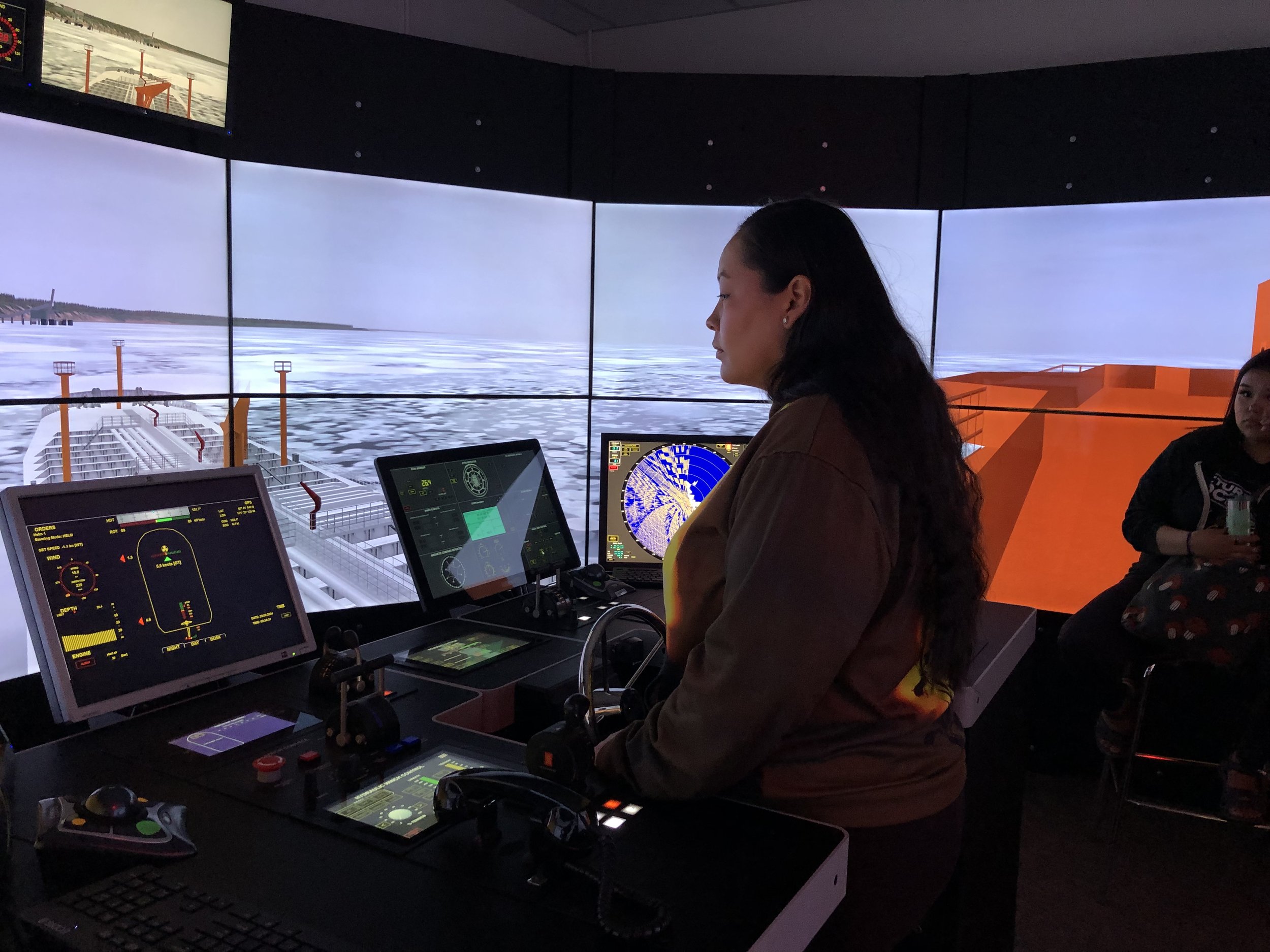


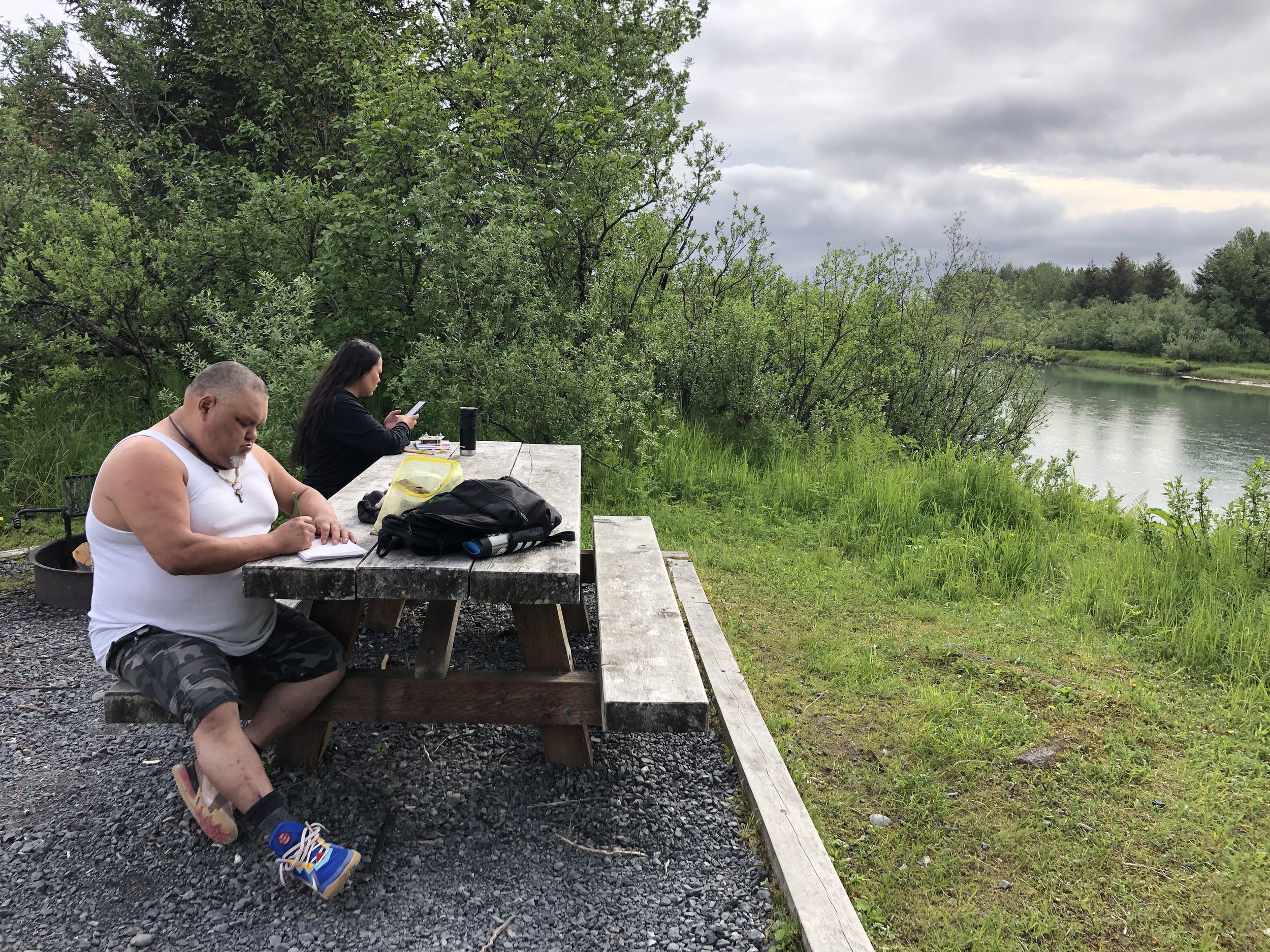
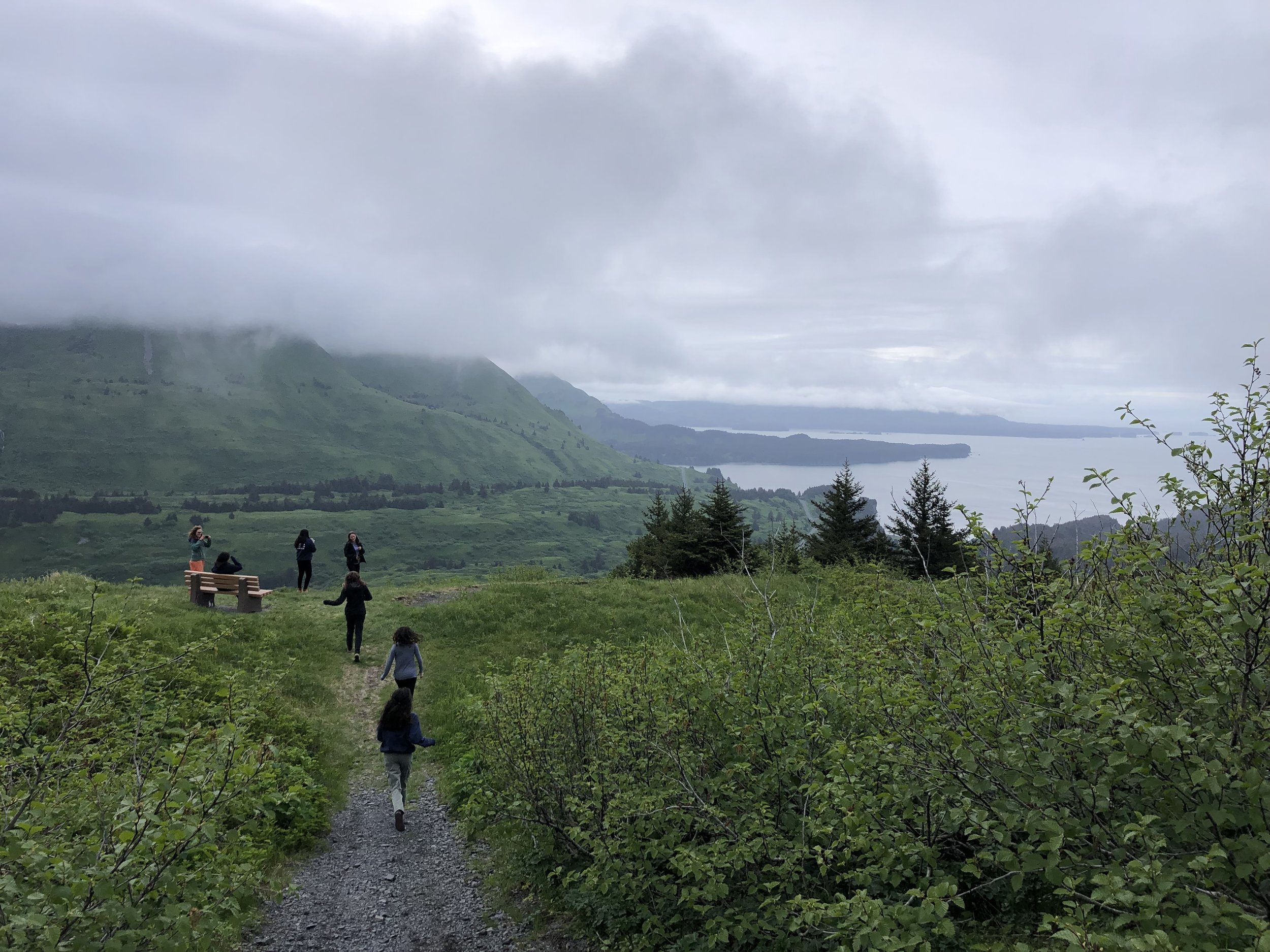


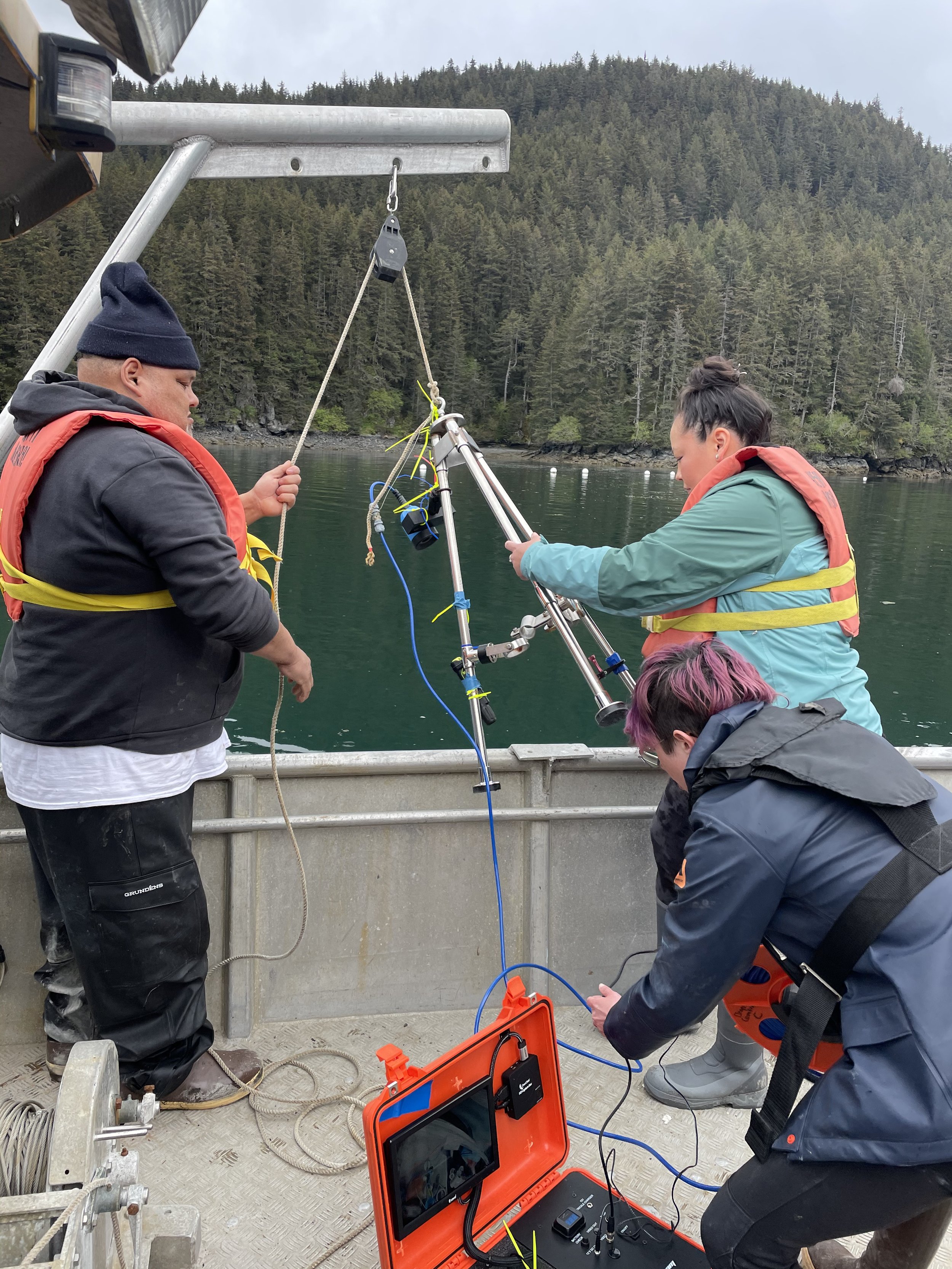

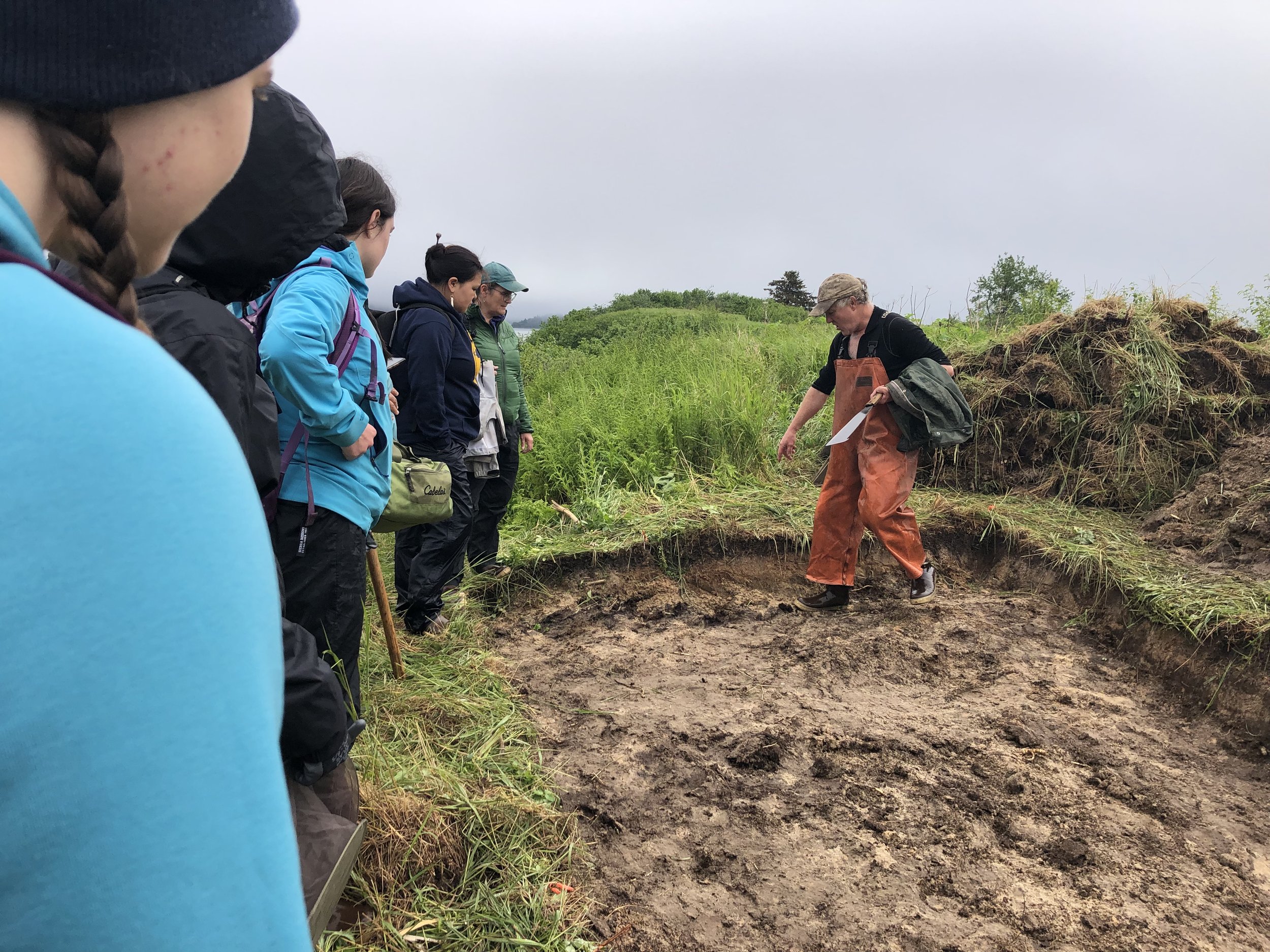




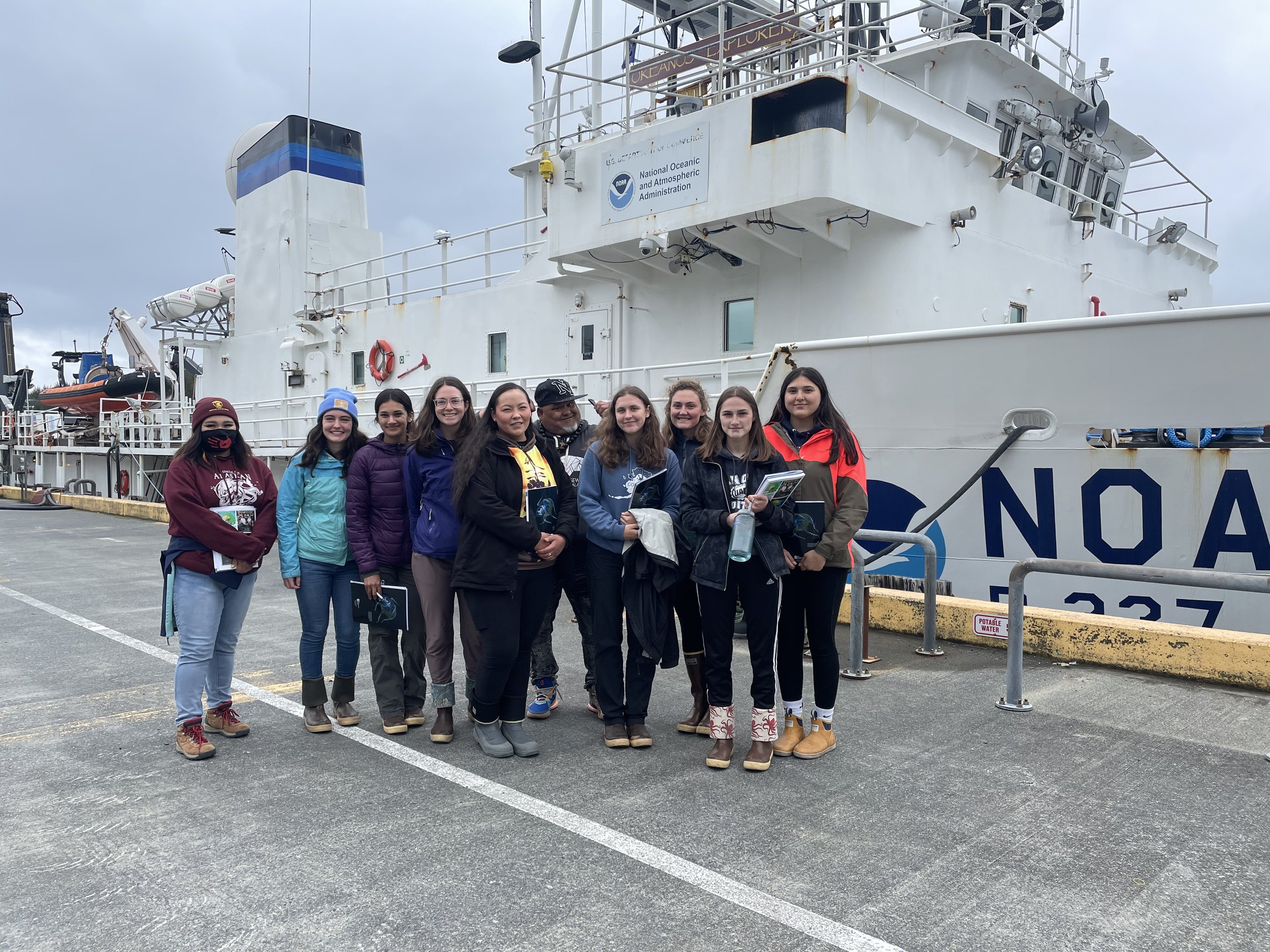
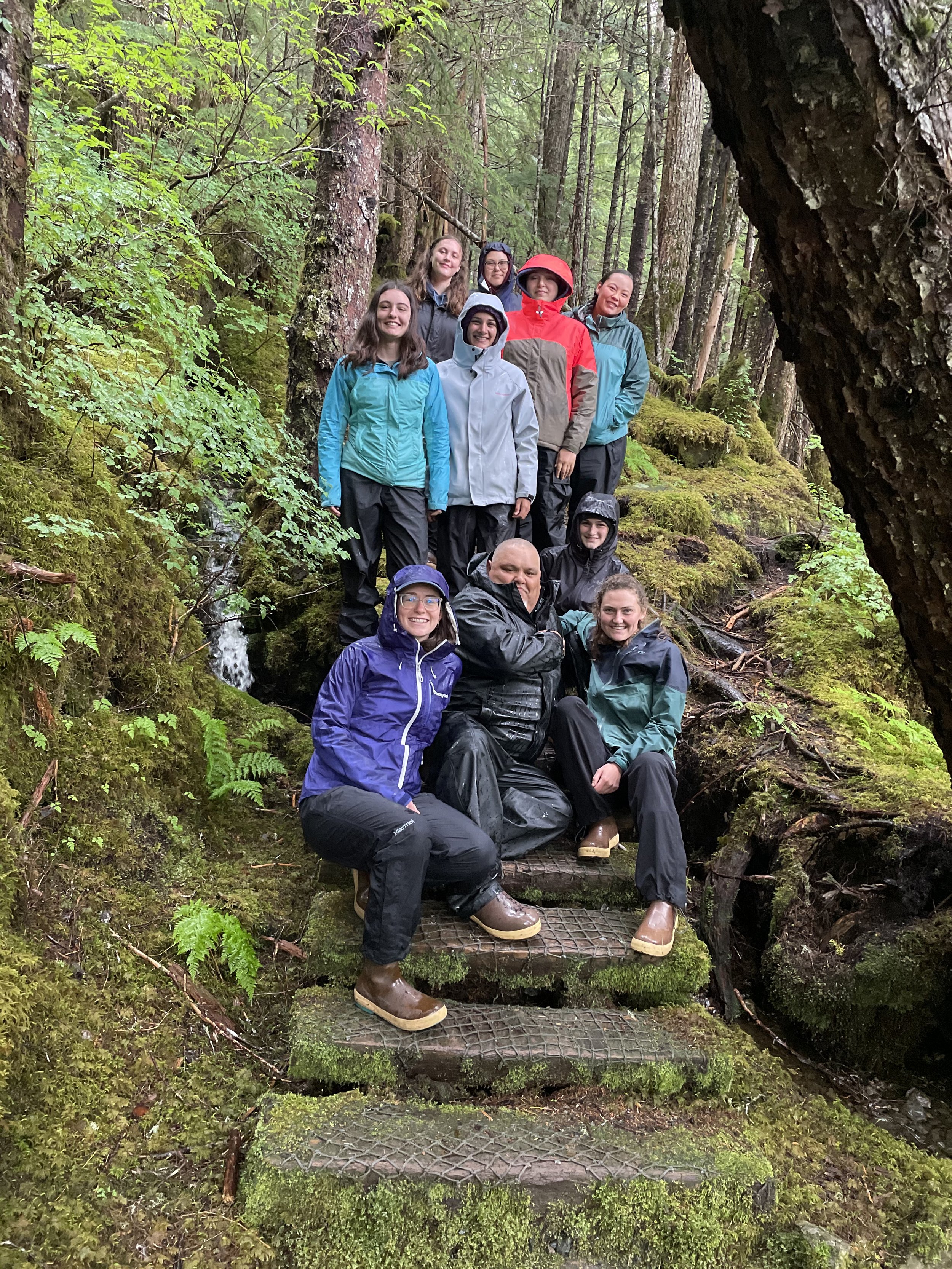
2026 Cohort
The 2026 CCE program will take in two primary locations: Seward and Kodiak. Participants will spend approximately 2 weeks in each of these two primary locations, as well as 2-3 days in Anchorage.
In 2026, the CCE will focus on four main themes:
Marine & coastal research
Environmental monitoring
Alaska Native cultural history & arts
Archaeology & museum collections care
Interns will receive compensation in the form of a $3,500 stipend. All travel, lodging, and food during the program will be provided. Travel costs to and from the program will also be paid. Some financial support is available for interns to acquire any needed field gear – further details will be shared with accepted applicants.
-
Travel & Lodging
As a cohort of eight interns, you will spend 4 total weeks traveling as a group to live and learn in each primary location, guided by a team of four CCE staff members. Group travel methods will include travel on small planes, boats, and in vans. Interns will sometimes live in close quarters, including bunkhouses and yurts, with other interns and program staff. During these segments of the program, interns will collaborate on cooking and sharing meals, respectfully share common space, and participate in chores and other living/working responsibilities that support the wellbeing of the whole group. Whenever feasible, interns will be housed in individual rooms at a hotel, rental house, or bunkhouse.
During the program, all settings in which CCE activities take place and locations of shared housing are dry and sober. Cell phone and internet service are limited in some of our program locations. In more remote locations, we may not have access to showers or laundry for periods of 2-3 days.
Program Format
Interns will be exposed to a “taster course” of many different topics within the spheres of coastal science, Alaska Native cultures, and traditional ecological knowledge, and will be able to reflect on this experience both individually and within groups. A typical 7-day week during CCE might look like 4 days of program activities, 1 day of group travel, and 2 days of rest/”off time”. Program activity days can be a full day in the classroom/lab, a full day in the field, or some combination of time both out in the field and in a classroom on the same day. Examples of past program activities include: sea star wasting surveys, forest ecology hikes, plankton tows & microscopy, nature journaling, and beading salmon leather earrings with Sugpiaq Elders.
Many field experiences during the CCE program take place outside in weather conditions that can quickly change. Past field environments have included rocky intertidal beaches; freshwater and saltwater wetlands such as streams, culverts, and marshes; and coastal forests. Summer conditions at these field sites can be buggy, rainy, muddy, and cold – part of the experience is learning how to confidently support yourself and fellow interns in learning and working in these conditions.
Connection with Home
During the 4-week program, there may be opportunities for interns to return home for a weekend, to tend to family/community needs, to reflect in a more familiar setting, and other such situations. CCE staff will work individually with interns on a case-by-case basis to determine what this will look like for each person. We want to make this program accessible for parents and caregivers, and will work with you to support your needs and commitments as best as we can while maintaining the quality and consistency of programming.
-
This program is a unique opportunity to explore many different fields within the realm of coastal ecology, in the form of place-based education delivered by a network that believes in healthy ecosystems, engaged and connected communities, and inspired environmental stewards. If you are considering a career change or trying to decide on a college major, you’ll walk away from this program with a better idea of what options are out there in coastal ecology, environmental sciences, and Alaska Native cultural revitalization work. If you live in or are from southcentral Alaska and want to support culture and science in your home community, this program will help you to gain the knowledge and skills to do so, while exploring career pathways.
Interns who successfully complete the program will be eligible to apply for funding which can be used to support continuing education or an extended internship with one of our CORaL Network partner organizations.
Application Information
Required Qualifications
Connection to the Gulf of Alaska and/or the region affected by the Exxon Valdez Oil Spill. The spill region includes Kachemak Bay, lower Cook Inlet, Prince William Sound, Resurrection Bay, Kodiak Island, and the Pacific side of the Alaska Peninsula.
We define connection to this region expansively. Examples include: connection to this region through your family's lineage (e.g. your family is from Kodiak, but you grew up in California); or, being an at-large Tribal citizen who is enrolled in a Tribe within the spill-affected region, but who currently resides outside of Alaska.
Ability to safely move over uneven terrain and carry up to 30 lbs of gear up and down harbor ramps.
Must be comfortable with ferry travel for up to 9 hours at a time, including possibly overnight.
18 years old or above by the start of the internship (June 8th, 2026).
Strong applicants will demonstrate:
Strong community ties & intention to bring their learning back to their communities in concrete ways.
Excitement about leaping into a new intensive learning experience!
Interest in engaging in reflection (both individually and in a group) on their role within their communities and ecosystems.
Readiness to approach the joys and challenges of living, learning, and working together with a small group in close quarters.
Interest in growing as a leader or experience in a leadership role (e.g. parenting, teaching, mentorship, organizing…)
We’ve left our list of desired qualifications flexible in recognition of the many forms of knowledge and experience that can exist both within and outside of typical academic or employment pathways. If you are passionate about the topics this program covers and want to leap into a new learning experience, please apply!
Can I nominate someone?
If you know someone who you think would be a great fit for this program, please nominate them through this form!
How to apply:
Applications for the 2026 CCE internship program are OPEN. Applications will be accepted on a rolling basis until February 6th, 2026. Applicants are encouraged to apply early for priority consideration.
Applicants who advance to the next stage will be contacted to schedule an interview in March. All applicants will be notified regarding our hiring decisions by early April 2026.
For questions about the program, please contact ccecoastalstudies@gmail.com for additional information or support with the application process.
CORaL Network
This program is funded by the Exxon Valdez Oil Spill Trustee Council, and is run by the Community Organized Restoration and Learning (CORaL) Network.
The CORaL Network is a partnership between six organizations: the Center for Alaskan Coastal Studies, the Chugach Regional Resources Commission, the Alutiiq Museum & Archaeological Repository, the Prince William Sound Science Center, Alaska Sea Grant, and the Alaska SeaLife Center. To read more about the Network’s goals and other projects, visit CRRC’s website.






